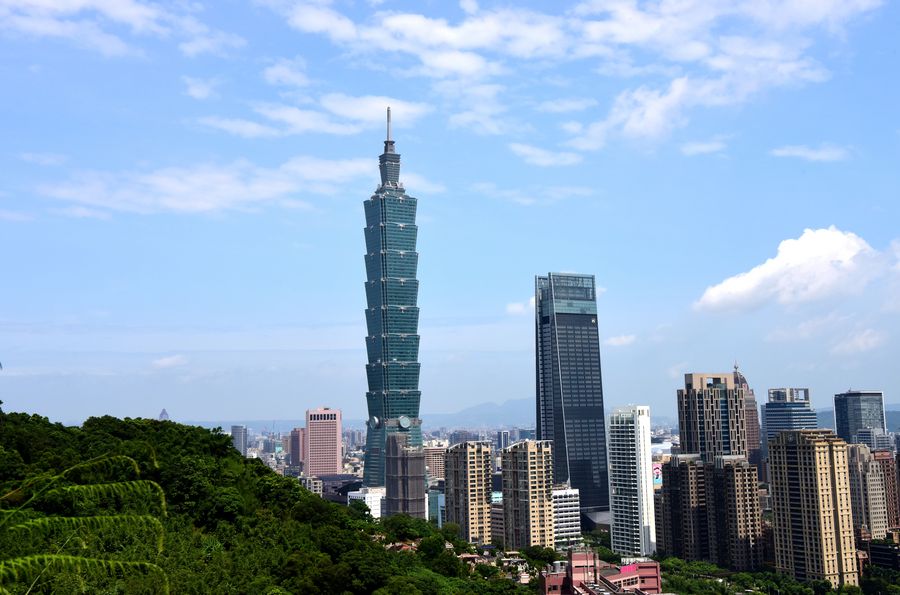
The Taipei 101 skyscraper in Taipei, Southeast China's Taiwan. [Photo/Xinhua]
This is an editorial from China Daily.
Whenever the word Taiwan is uttered by certain Western politicians it has become their habit to accompany it with an accusing finger pointed at Beijing. Sticking faithfully to the script written by Washington, they try to paint the picture that Beijing is using "threats, coercion, intimidation or the use of force" in a bid to change the status quo.
Some have even tried to link the Taiwan question with the conflict in Ukraine.
Such talk is irresponsible and has been firmly rebutted by Beijing, which has repeatedly clarified that the Taiwan question is an internal affair and therefore fundamentally different from the Ukraine issue. Which is something that even the countries hyping up the claim that the Chinese mainland is itching to use force implicitly acknowledge as they all say they adhere to the one-China policy.
The United States has made no bones about the fact that it is using the Taiwan question as part of its "Indo-Pacific" China-containment strategy, and many of its allies, such as the United Kingdom and Japan, are tagging along for the ride as they have forgotten how to stand on their own two feet.
Some countries in the European Union, however, seem caught on the horns of a dilemma, as whether to go all-in with the US or not in its efforts to suppress China's rise has become a pressing question that will determine if the bloc asserts or surrenders its strategic autonomy.
The High Representative of the European Union for Foreign Affairs and Security Policy Josep Borrell shed some light on the pickle the EU has got itself into in an article published in a French weekly on Sunday.
Calling for European nations to send warships to the Taiwan Strait to "signify Europe's commitment to freedom of navigation", he said that Taiwan "concerns us economically, commercially and technologically". And he explained why — "because Taiwan has a strategic role in the production of the most advanced semiconductors". That this comment came after he attended the G7 foreign ministers' meeting in Japan is probably no coincidence. It echoes similar remarks of the top diplomat of the US in the meeting.
But putting aside the fact the semiconductor risk comes from Washington, which is trying to get an exclusive and iron grip on the production of the most advanced semiconductors, it shows that the EU hierarchy at least is still intent on toeing Washington's line. The only reason Borrell would call for European warships to patrol the Taiwan Strait is to please Washington. Why? Because, the EU leaders, who are of a certain generation, believe the bloc has "a major security concern, Ukraine".
But Borrell — and other Western politicians — should know that European warships sailing though the Taiwan Strait is not conducive to peace and stability. Every time they do so, it will be a provocative move to intervene in China's internal affairs.
Any such provocation risks disaster as it is foolishly playing with fire.

 中文
中文



